Engaging North Carolina
Moore County
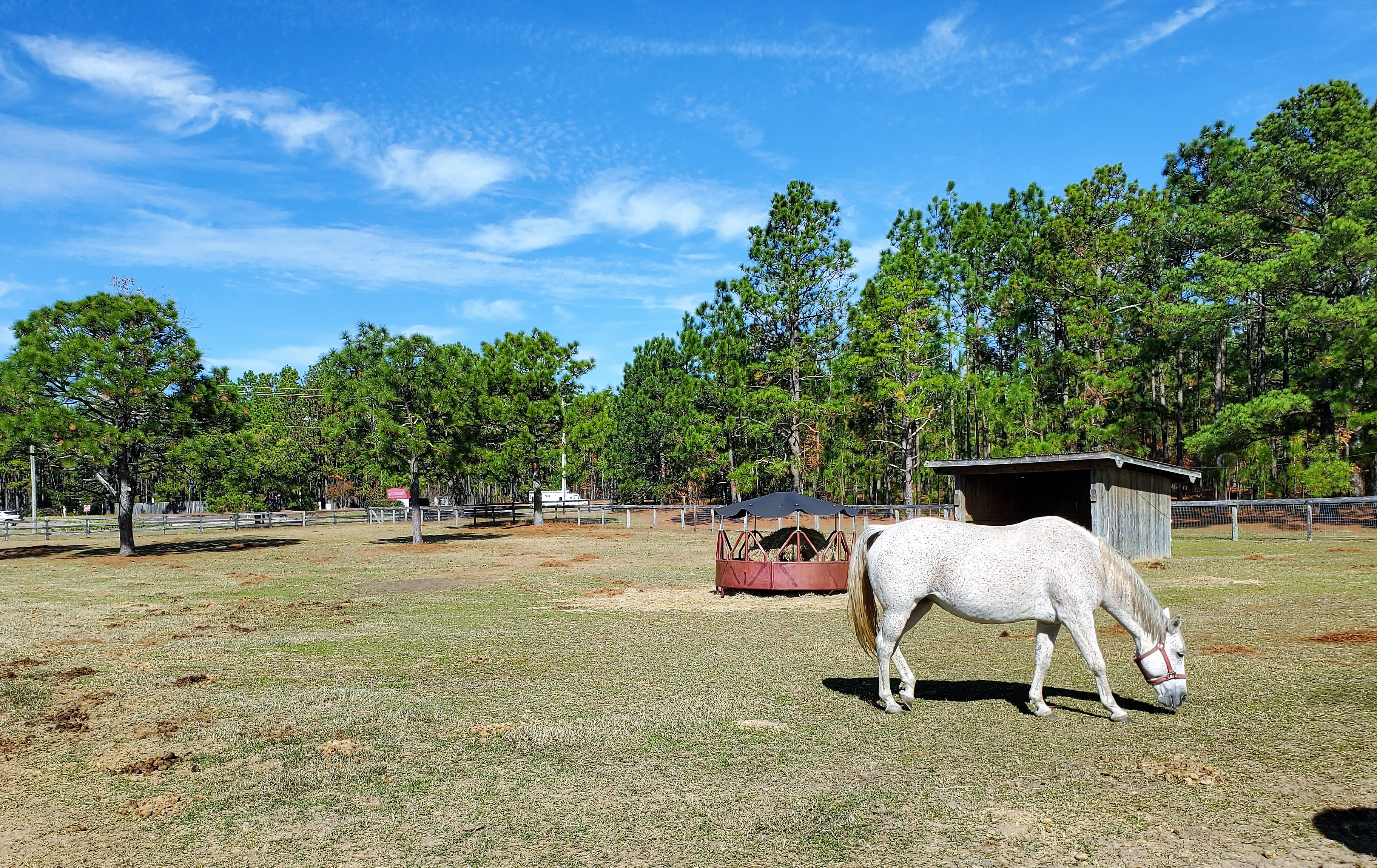
Quick Facts
Students: 316Applicants: 264
Alumni: 1584
Park Scholars: 0
Goodnight Scholars: 2
Caldwell Fellows: 0
Located in the Sandhills south of Raleigh, Moore County has a population of 97,264 and a total employment of 35,062 (36.0%). It was established on July 4, 1784.
The county seat is Carthage, but its best known villages are Pinehurst and Southern Pines, homes to two of North Carolina’s twin sporting/tourism industries, golf and equestrian events.
The county’s most profitable agricultural product is poultry/eggs, while the largest product by acreage is forage land (for grain production). The type of livestock produced most by total number is meat-type chickens.
The largest manufacturer is Ingersoll Rand Company (the county’s 15th-largest employer), which manufactures industrial and commercial heavy machinery and employs between 100 and 249 people.
The county is served by Sandhills Community College, chartered in 1963 and opened on Oct. 1, 1965, as part of the 58-campus North Carolina Community College System. It has 4,000 regularly enrolled students seeking associate degrees in 34 applied science programs and about 11,000 students taking continuing education classes.
NC State is Here
CVM’s Equine Health Center at Southern Pines
Horses and golf have been competing sporting industries in Moore County since the towns of Southern Pines and Pinehurst were founded in the late nineteenth century.

NC State serves the former through the College of Veterinary Medicine’s Equine Health Center at Southern Pines, a satellite facility that primarily serves the state’s $1.9 billion equine industry. Services offered by the EHC-SP include Contagious Equine Metritis import quarantine, equine reproduction, ophthalmology and diagnostic testing.
The CEM quarantine service is USDA-certified for imported mares and stallions more than 731 days old that are imported from CEM-infected countries. It is the only such facility located in North Carolina and one of the few on the East Coast.
The Equine Reproduction Clinic provides services for equine infertility, embryo transfer, semen collection/freezing and transport, artificial insemination, reproductive emergencies and reproductive surgery. (Read more about the Equine Health Center.)
James Goodwin Forest
Located in Carthage, about 45 miles south of NC State’s main campus, the Goodwin Forest comprises 1,410 acres of reclaimed and restored farmland by James L. Goodwin, a Yale-educated forester who reforested the land with pine seedlings.
Primarily plantation pines, the forest is managed to produce an economic return that funds scholarships for College of Natural Resources students. There is a 100-acre tract devoted to longleaf pines, the unofficial state tree of North Carolina.
Currently there is no active research being conducted in the forest. However, there are future educational opportunities for sound southern pine management, longleaf restoration and spacing trials.
The forest has some leased land for hunting but is not accessible to the public and has no onsite facilities.
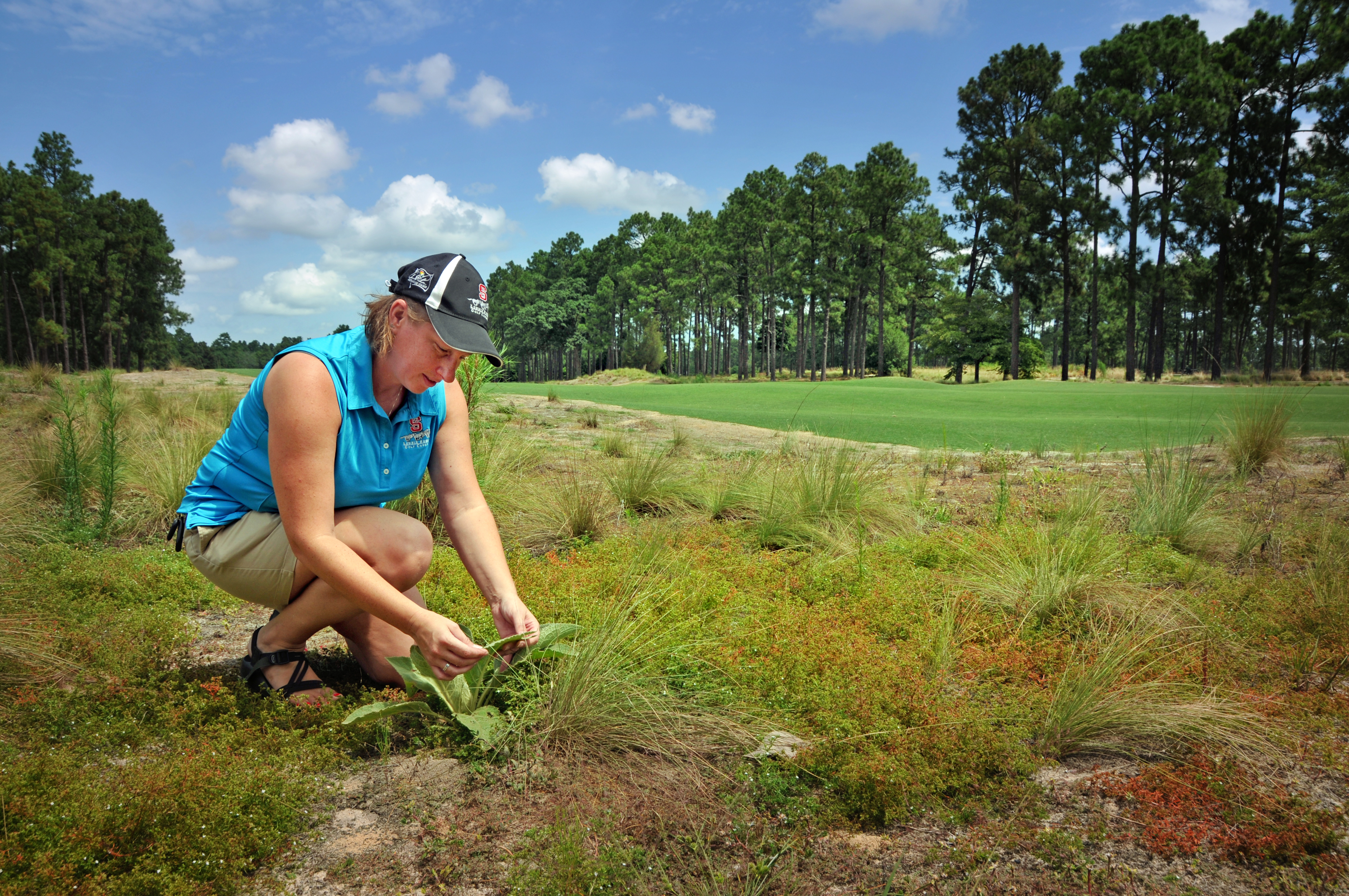
Danesha Carley checks out a plant growing along the rough at Pinehurst No. 2.
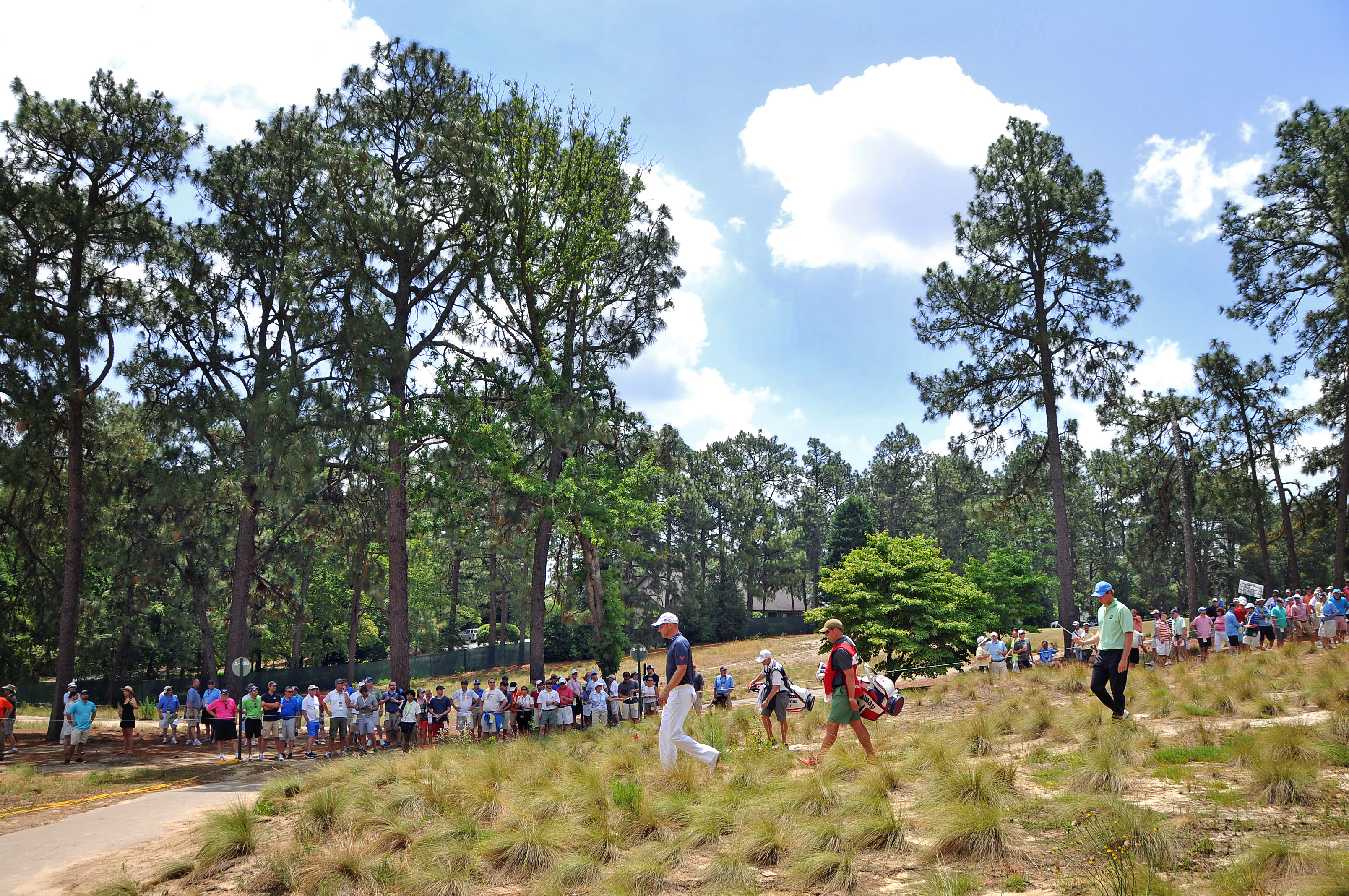
Golfers and their caddies walk through the native grasses in the fairway of hole No. 9 during US Open action.

PGA Golf Management graduate and current Lonnie Poole Golf Course assistant pro Jeff Volia (right) works with a patron on his swing at the American Express Fan Experience at the US Open.
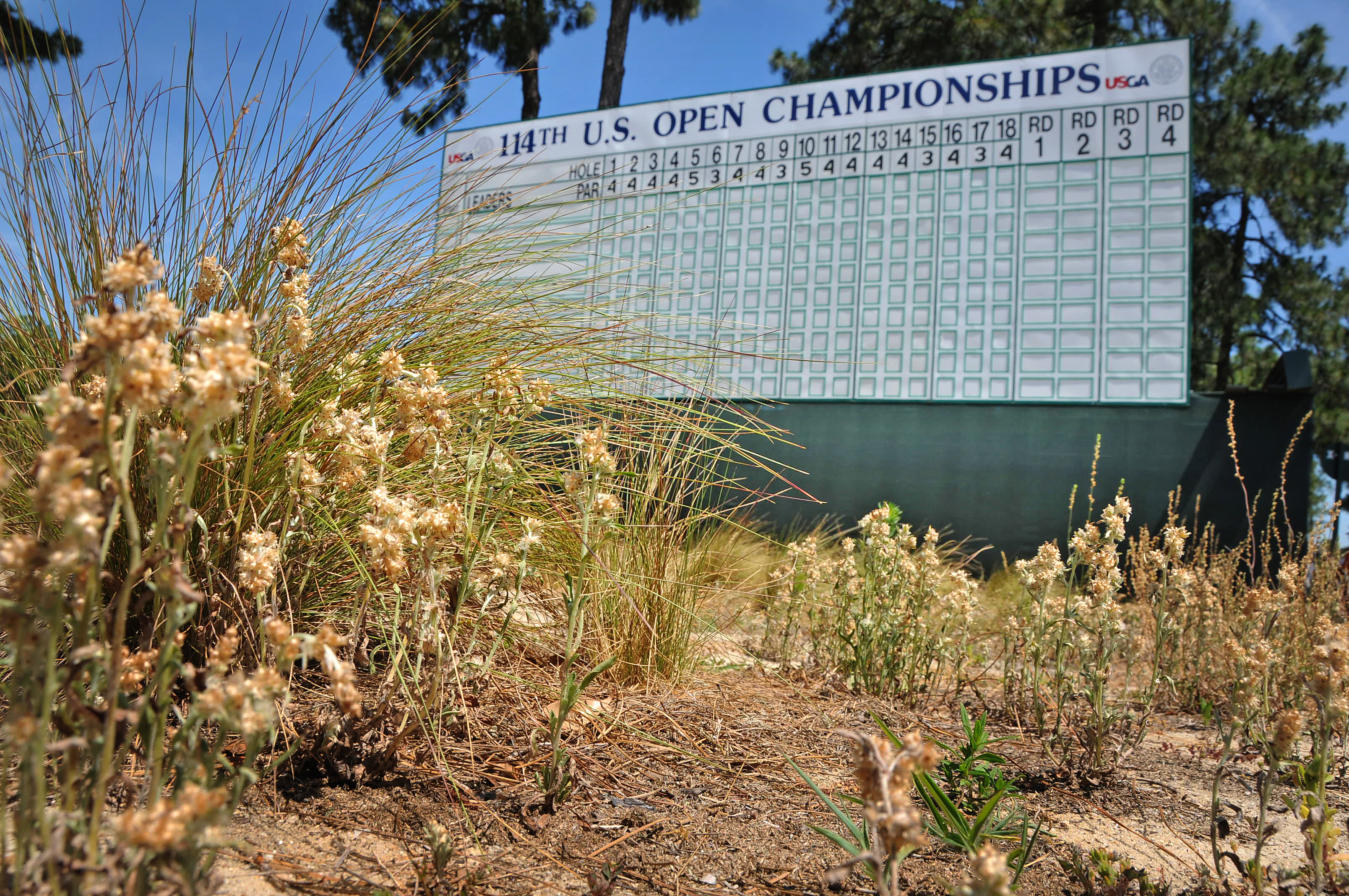
Native grasses line the 18th fairway of Pinehurst No. 2, surrounding the US Open leaderboard.
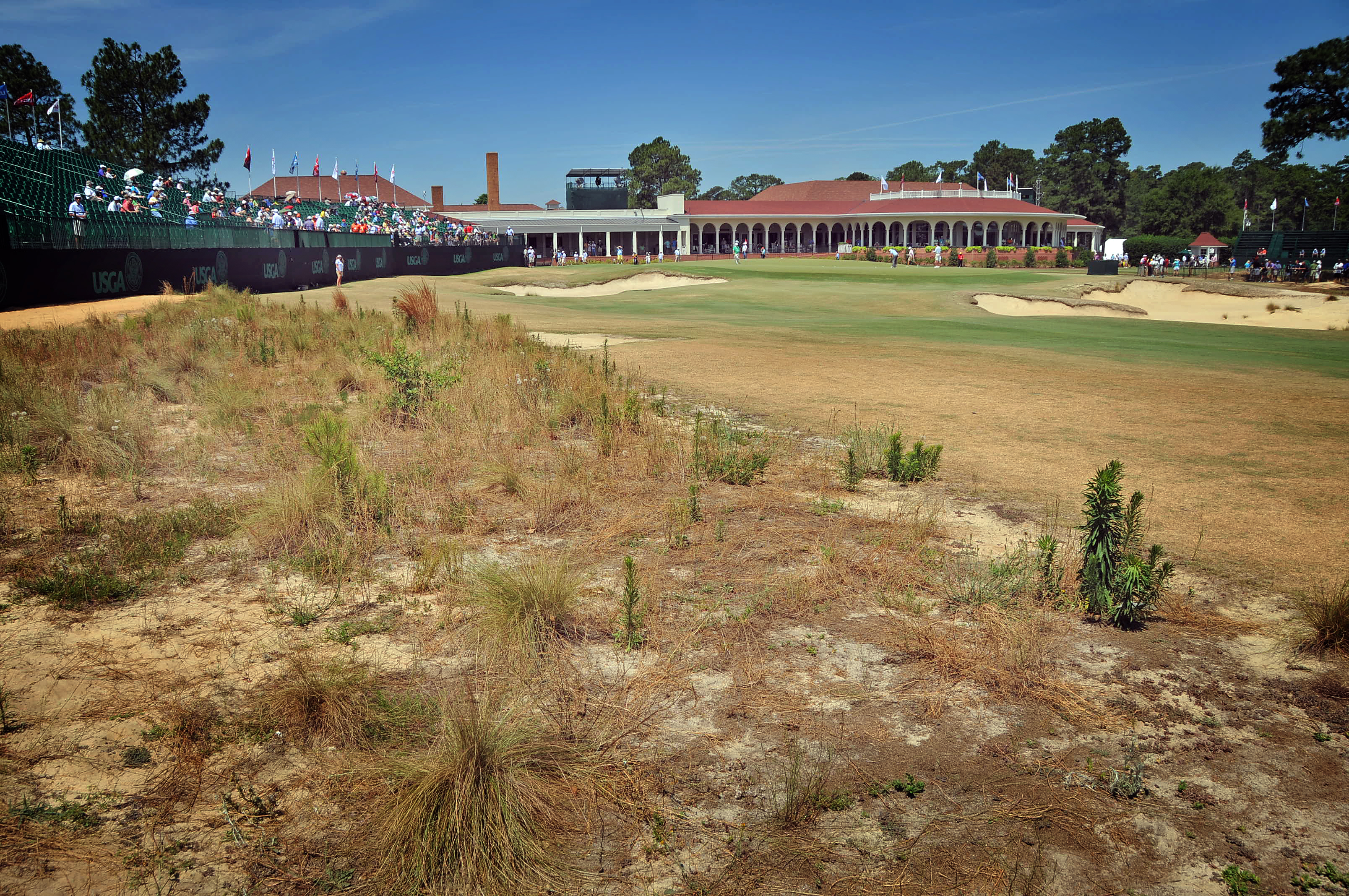
Native grasses surround the 18th fairway at Pinehurst No. 2.

Fans line up along the 13th hole to watch golfers during US Open practice.
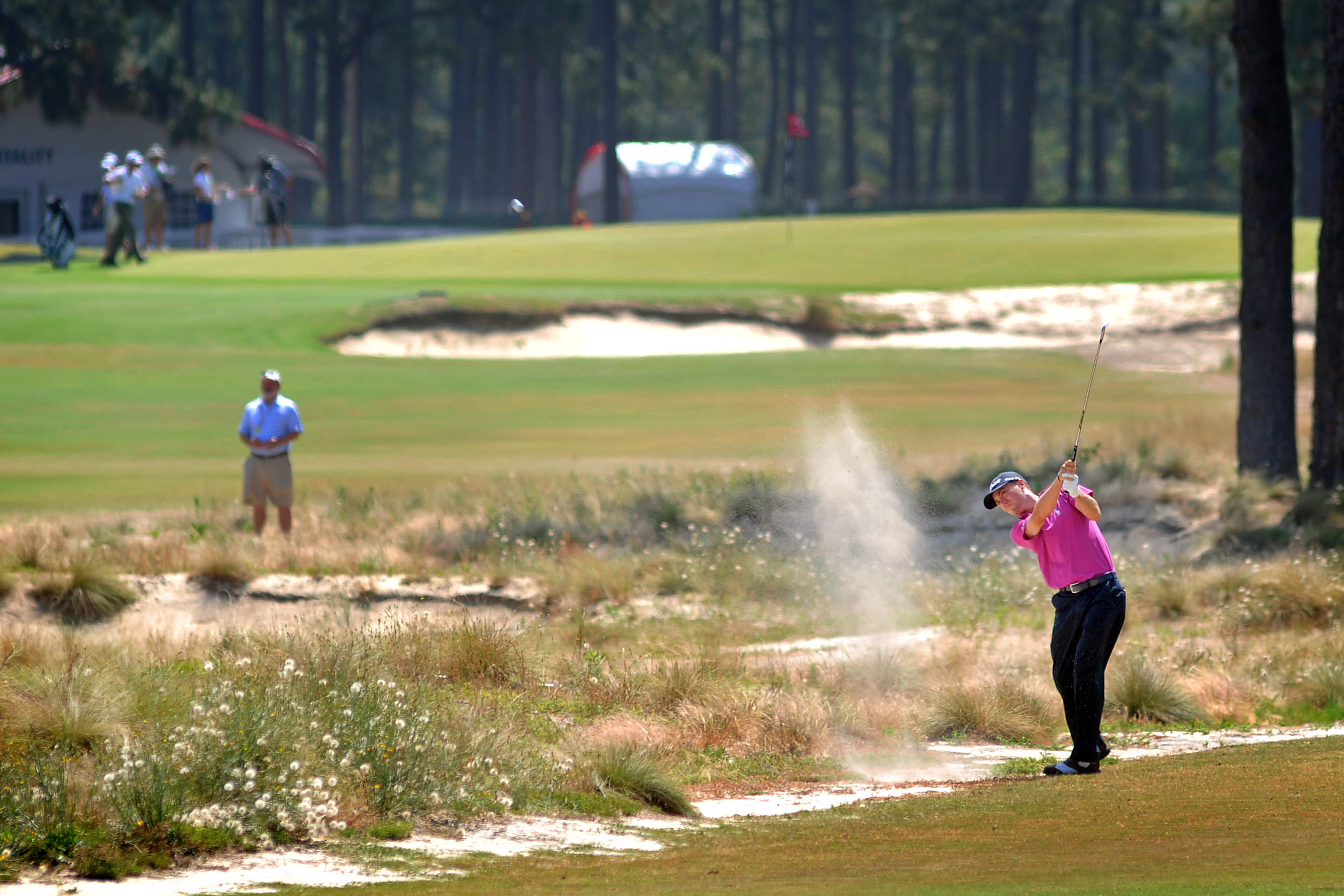
A golfer takes a swing during practice for the US Open at Pinehurst No. 2.

American golfer Russell Henly (r) hits during a practice round at US Open as the gallery cuts across the fairway behind him.

Reigning Masters champion Bubba Watson practices his putts at the US Open.
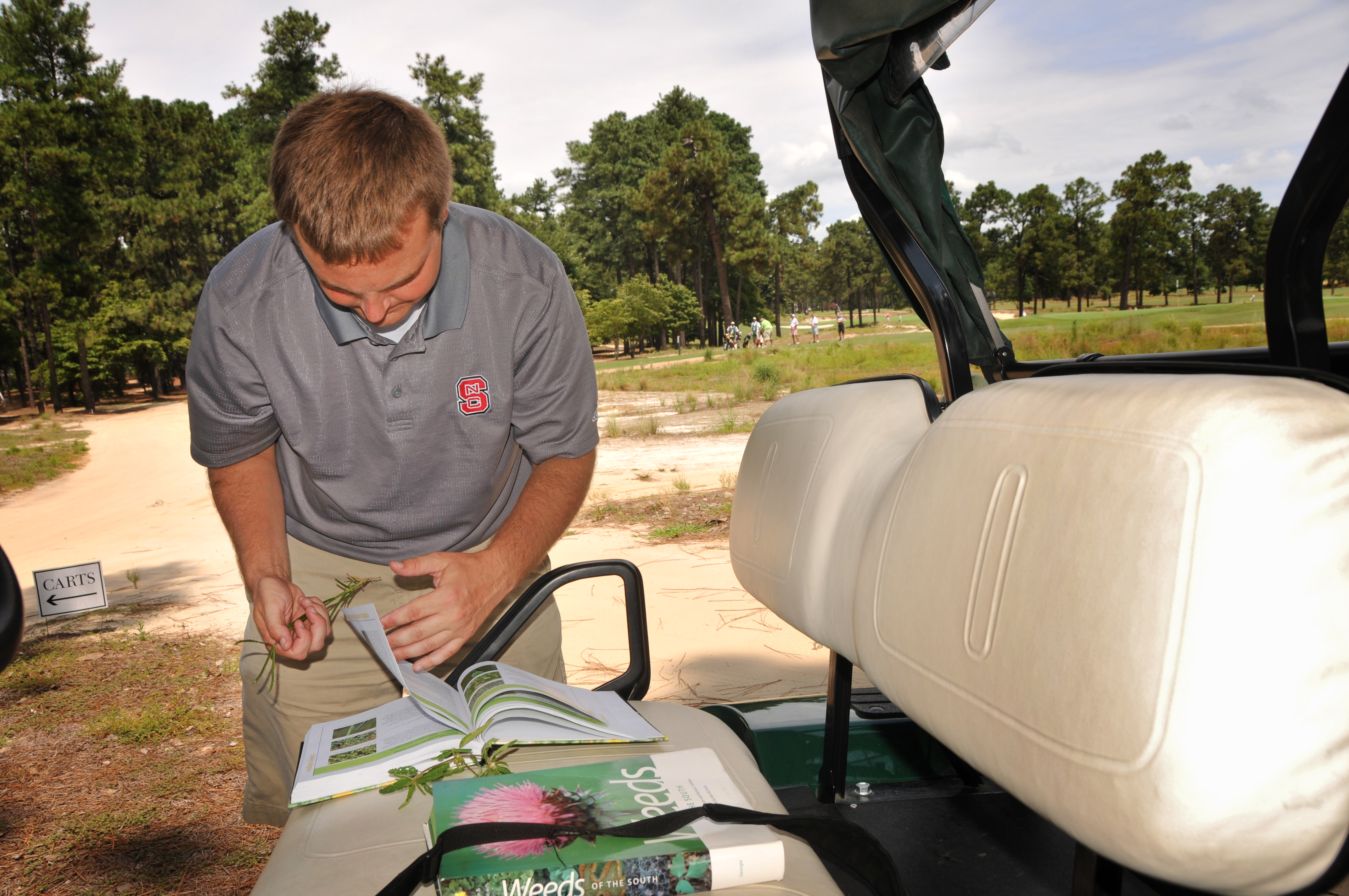
A grad student looks up a plant while working at Pinehurst No. 2 before the US Open.
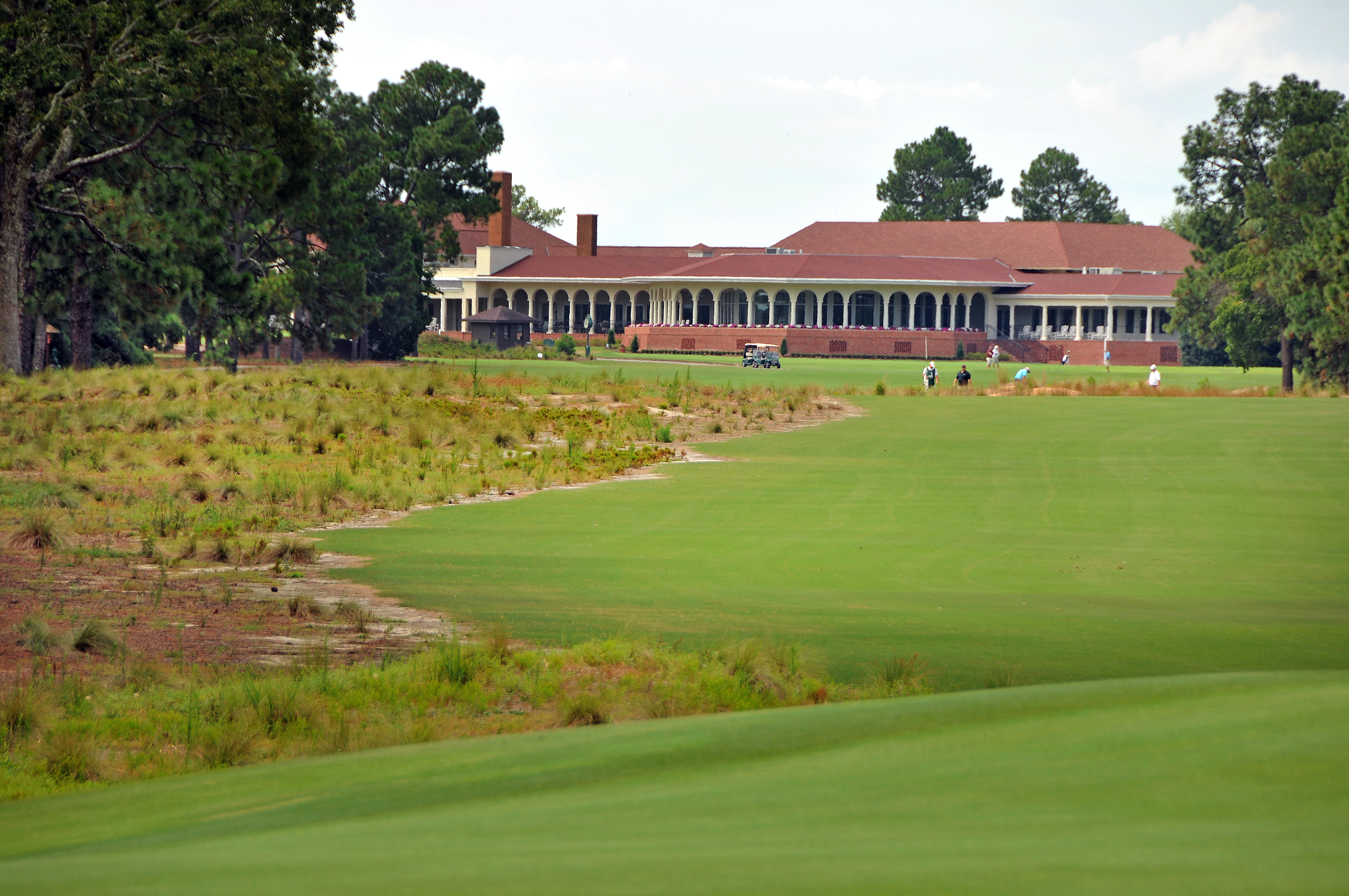
The fairway along hole No. 1 at Pinehurst No. 2 gives way to a rough consistent with the natural plants native to the Sandhills.
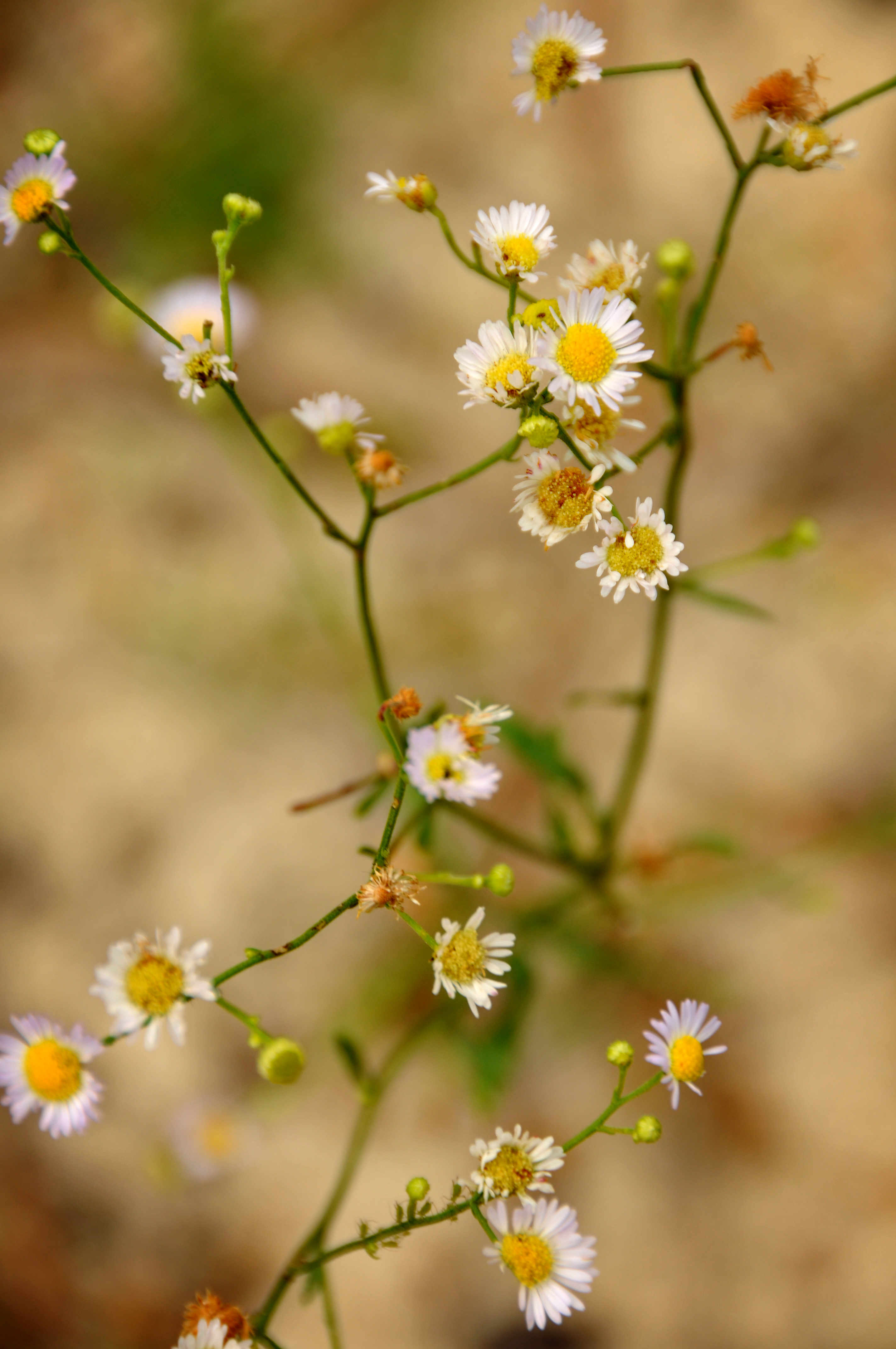
What may look like weeds to many are actually native plants dotting the rough at Pinehurst No. 2.
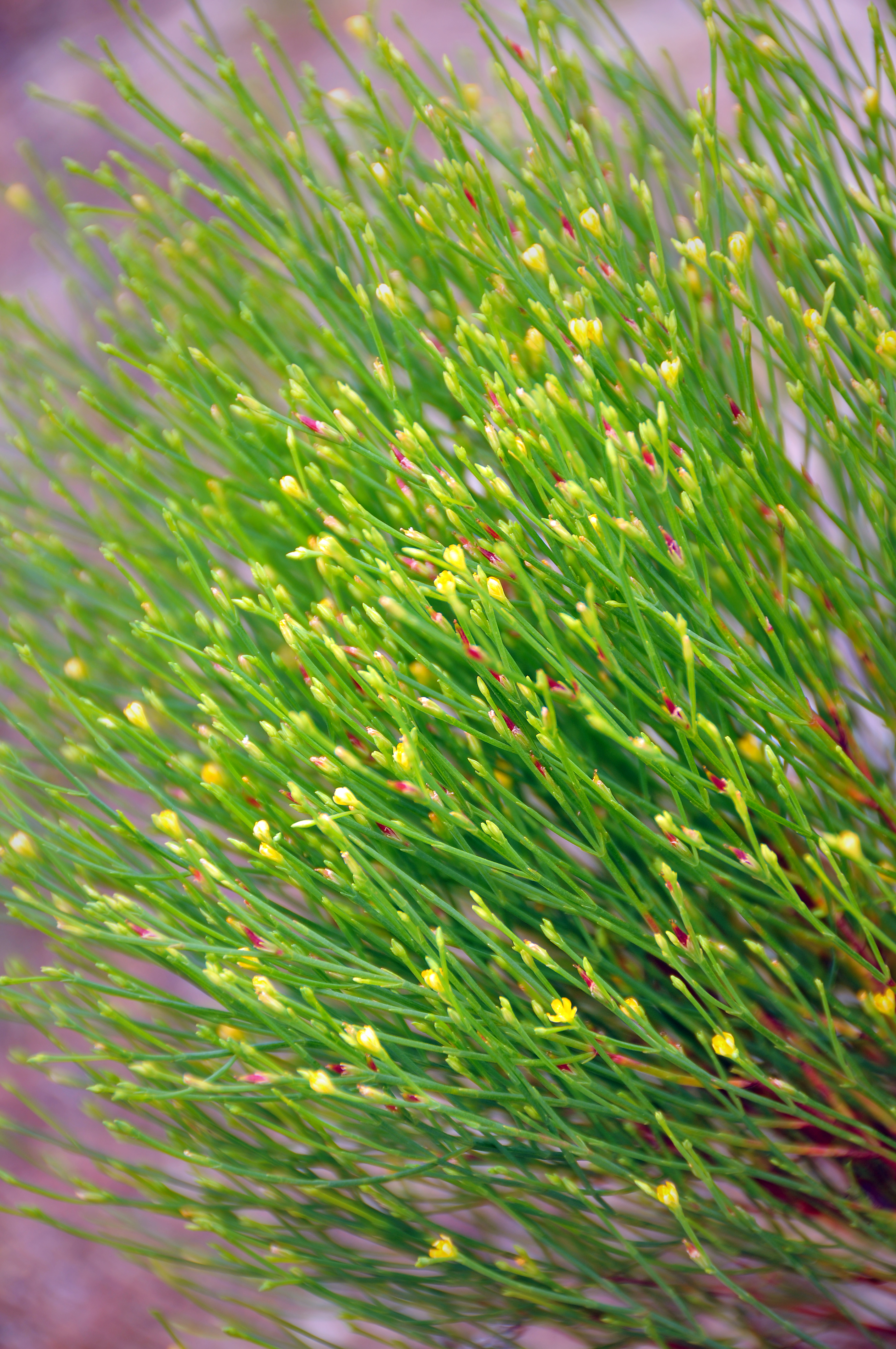
Native plant growing in the rough along a hole at Pinehurst No. 2.

Alumni Chris Hartwiger (red shirt) and Kevin Robinson (blue shirt) check on the conditions of the third green during a break in US Women's Open action.
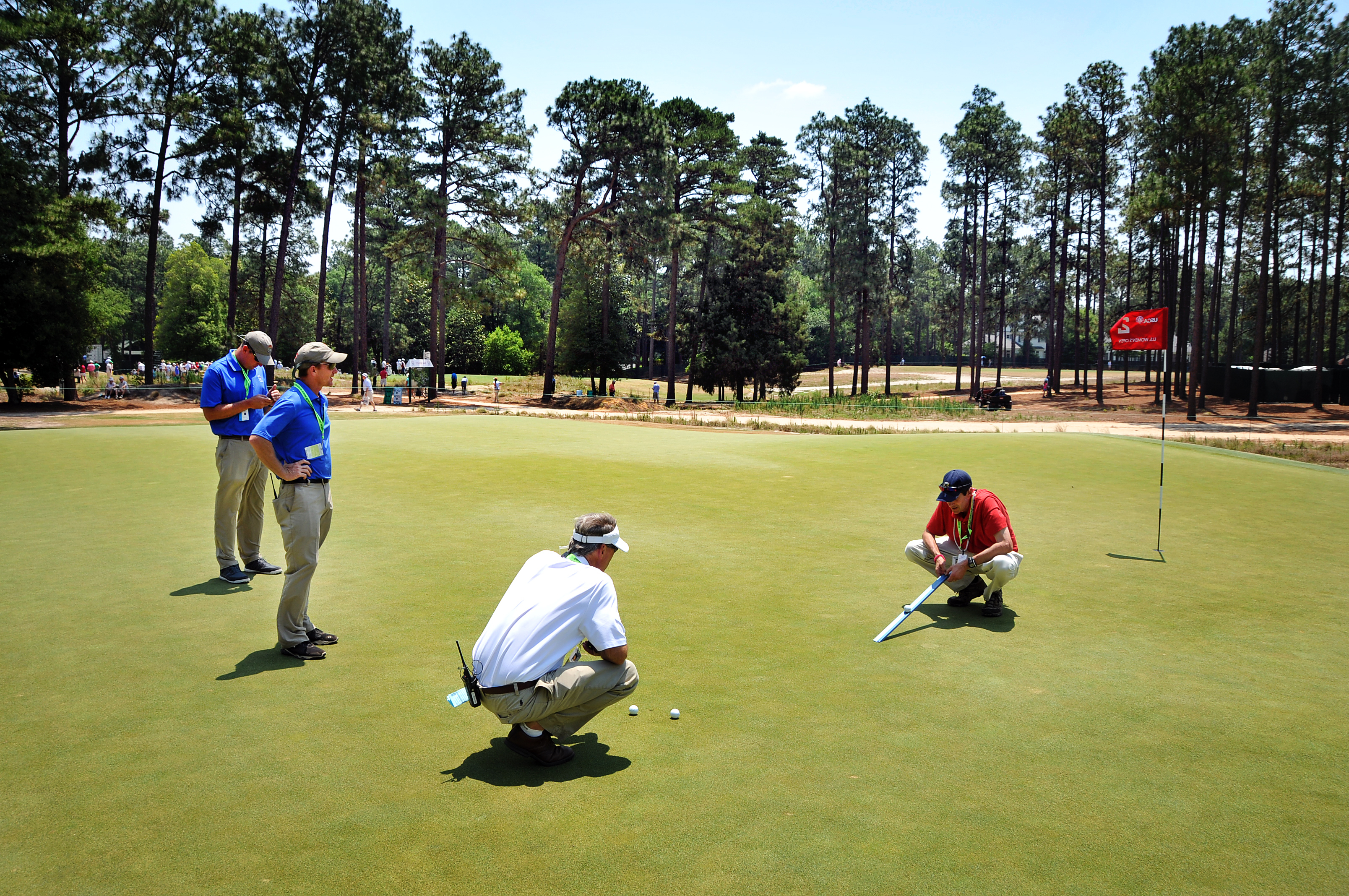
Alumnus Chris Hartwiger (right) checks putting green speed on the second hole of Pinehurst No. 2 as fellow alumni John Jefferys and Kevin Robinson (blue shirts) look on during a break in US Women's Open action.
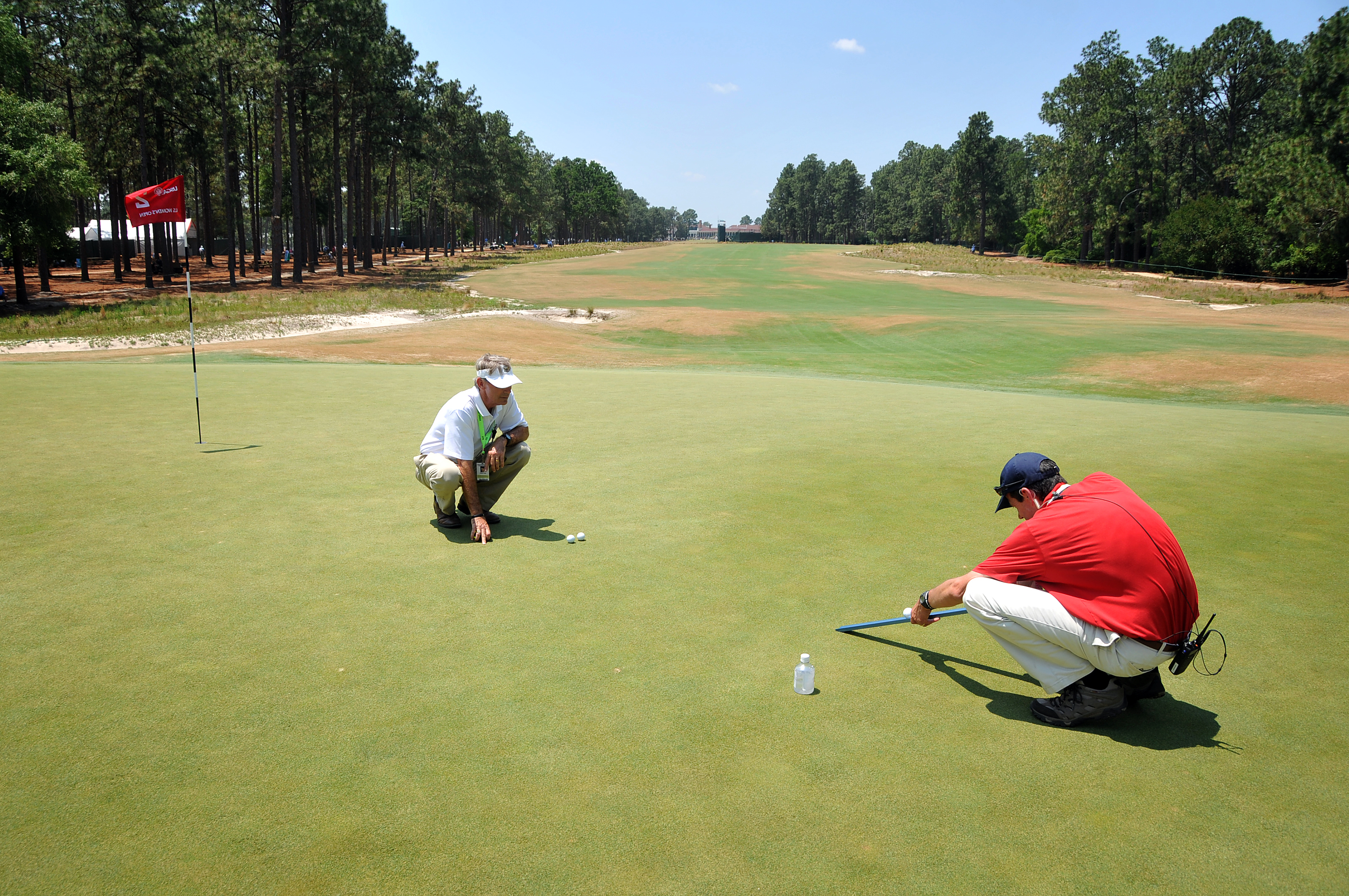
Alumnus Chris Hartwiger (right) checks putting green speed on the second hole of Pinehurst No. 2 during a break in US Women's Open action.
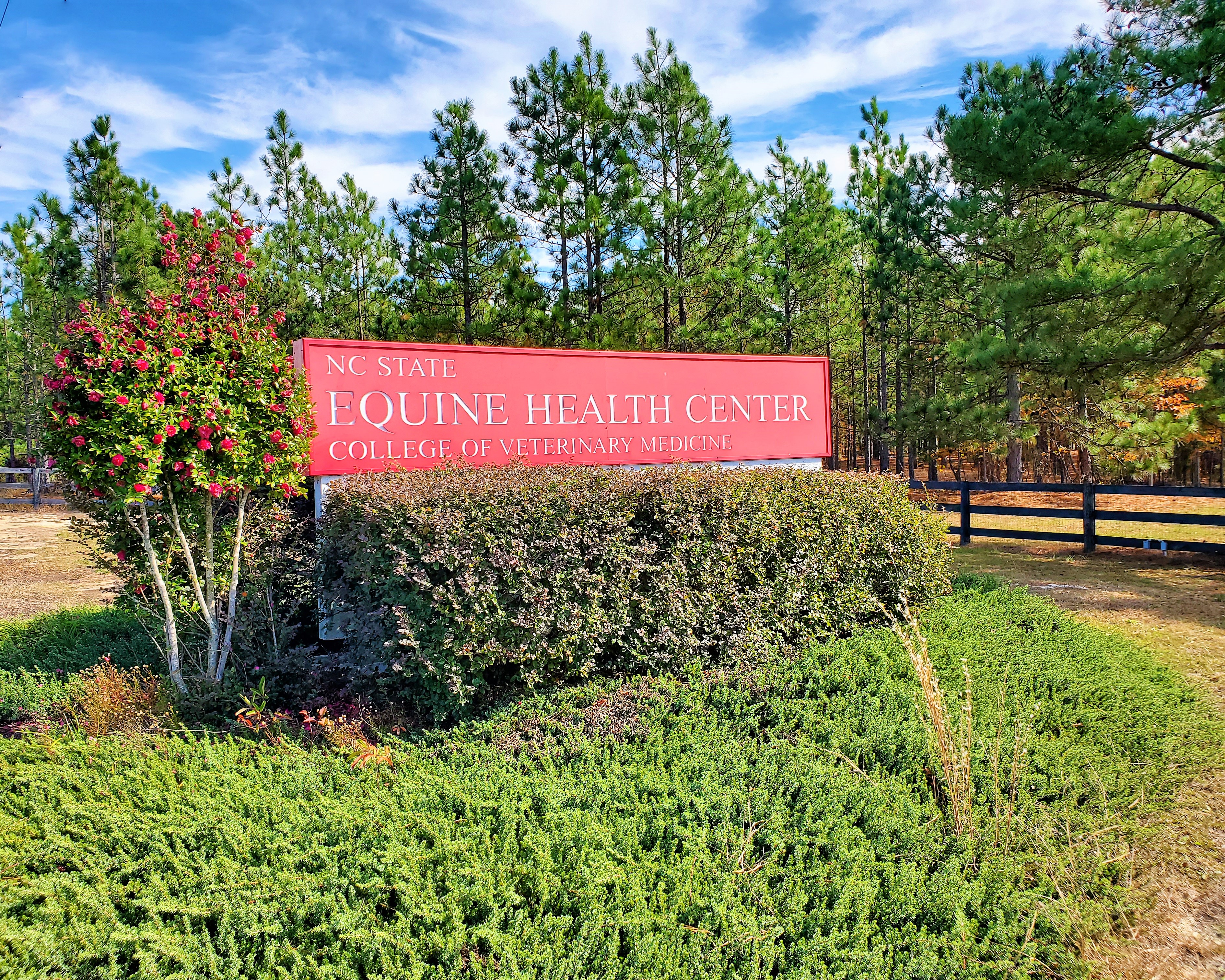
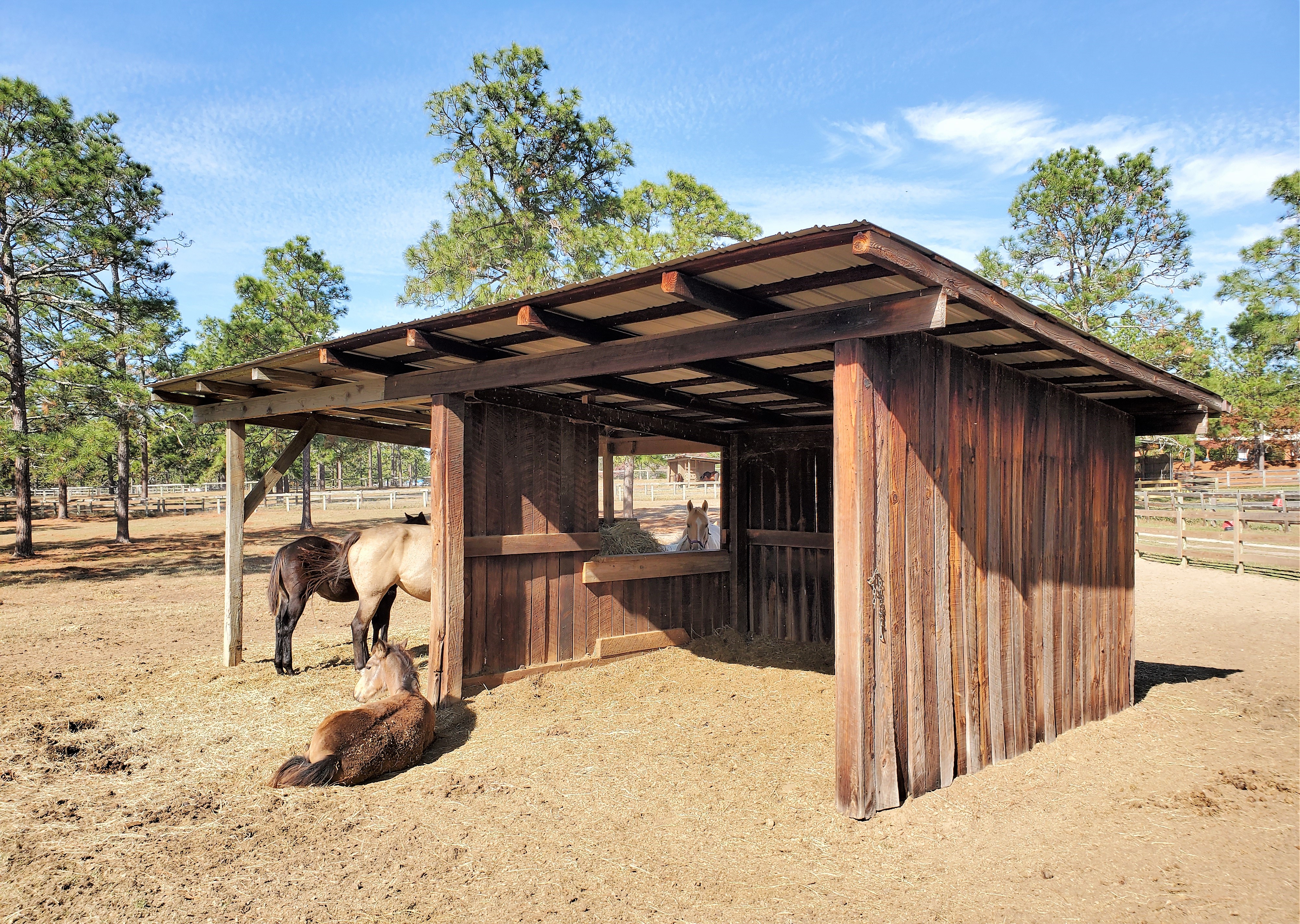
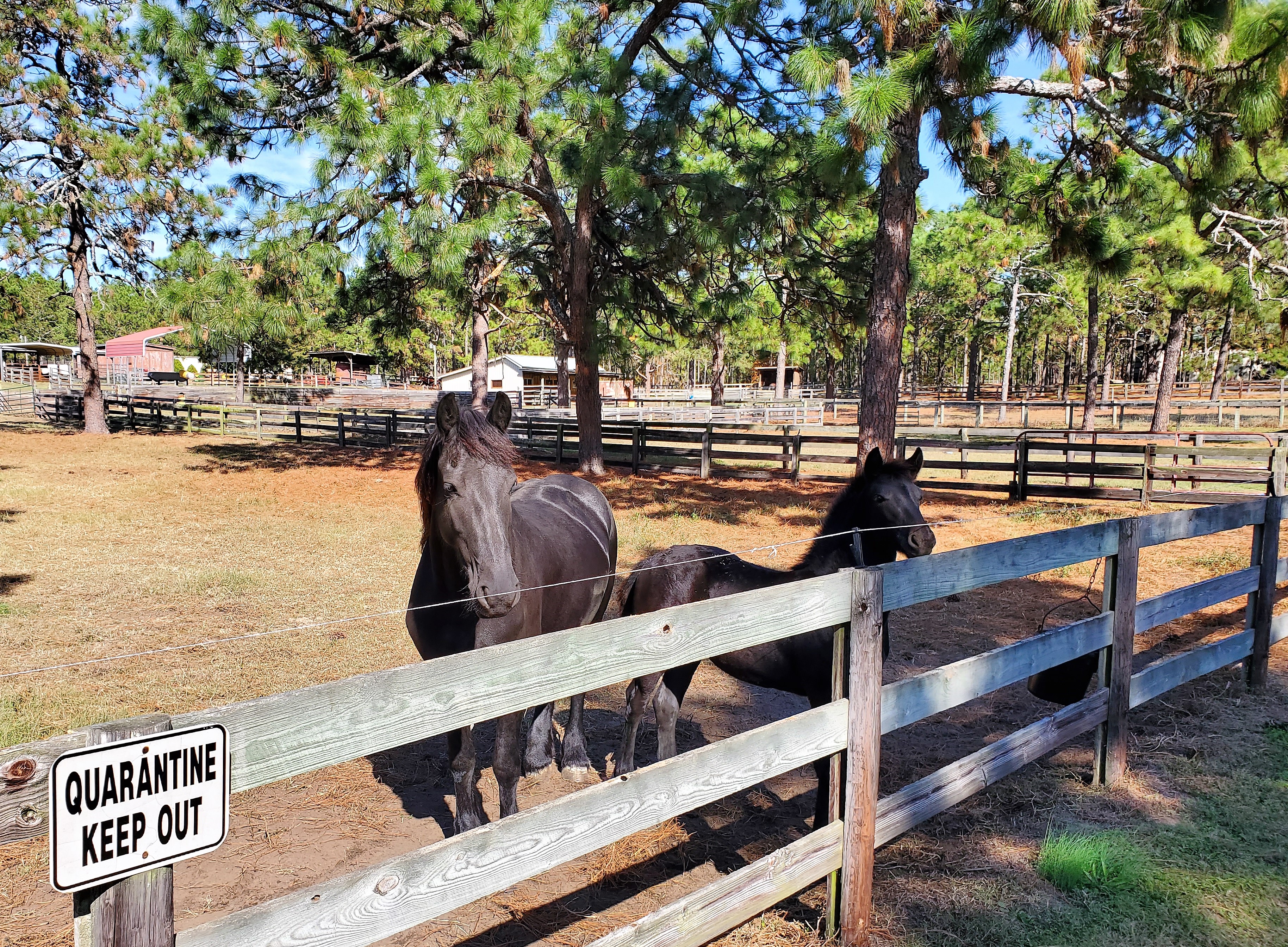
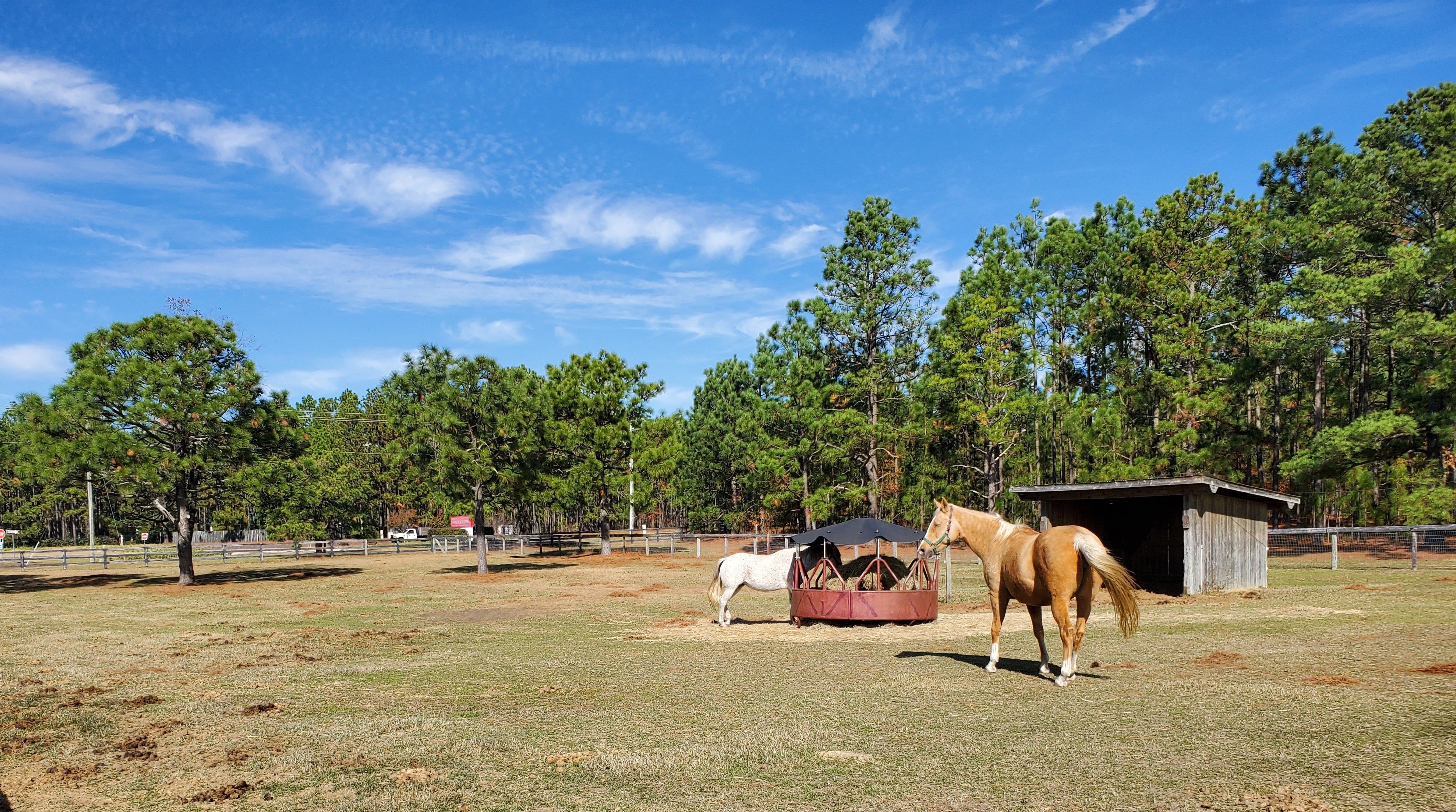
1 of 20
Pride of the Pack
Caretaker to the Stars (of Golf Courses)
As the golf course maintenance manager of the 10 courses at Pinehurst Resort, NC State alum Kevin Robinson is the caretaker of some of golf’s most iconic courses.
A 1992 NC State graduate with a degree in turfgrass management, Robinson has worked in the golf industry for nearly three decades. He was the superintendent for the resort’s famous No. 2 course in the four years leading up 2014’s 118th U.S. Open, in which the course was dramatically changed with the assistance of NC State turfgrass scientists. (Read more about NC State at the Pinehurst Resort.)
From All-American Player to World-Class Instructor
Kelly Mitchum, a native of Advance, North Carolina, was a four-time All-American for the NC State golf team and was the 1991 Atlantic Coast Conference Player of the Year. He won the 1993 North & South Amateur at the No. 2 course where he now works and was a semifinalist in the 1992 U.S. Amateur.
Mitchum competed professionally for years on various tours and has been a lead instructor at the Pinehurst Golf Academy for more than two decades.
He’s played in four PGA Championships and multiple PGA Tour events, and he recently won his sixth Carolinas PGA Championship. In 2012, Mitchum finished tied for second in the 2012 PGA Professional National Championship to record his fourth top-10 performance in six appearances.
From Engineering to Extension
Lifelong educator Edward Wolfe Ruggles graduated from NC State in 1922 with a degree in electrical engineering. After serving in the Signal Corps Reserve and recovering from tuberculosis, he became an instructor in NC State’s electrical engineering department in 1926.
Just two years later, the Southern Pines native became assistant director of extension, the university’s first continuing education program. After becoming the program’s director in 1934, he played a key role in expanding the program from offering a few short courses to serving thousands of students with a broad range of courses covering everything from machinery to management to agriculture, as well as numerous technical subjects including radio, TV and electronics.
Ruggles’ 31 years in the program paved the way for extension divisions in colleges and universities to evolve into continuing education centers. By the time he retired in 1965, more than 12,000 students had enrolled under his guidance, and the division had gained a national reputation. (Read more about Edward Ruggles.)
Historian at Heart
A land surveyor and engineer by trade, Rassie Everton Wicker was a man of many talents. After attending NC State from 1910 to 1912, he left college to pursue his career and eventually became a licensed civil engineer.
However, his true passion was for Moore County and its history. The Cameron native is said to have measured and mapped most of the county and was an authority on it, as both a surveyor and a historian. Wicker was an organizing member of the North Carolina Society of County Historians and served as its president. He also was president of the Moore County Historical Society.
His monumental work on land deeds, grants, will books, court records and Revolutionary War data was published by the county historical society in 1971. In addition to his interest in local history, Wicker was an amateur astronomer, musician, botanist, mathematician and master craftsman. (Read more about Rassie Wicker.)